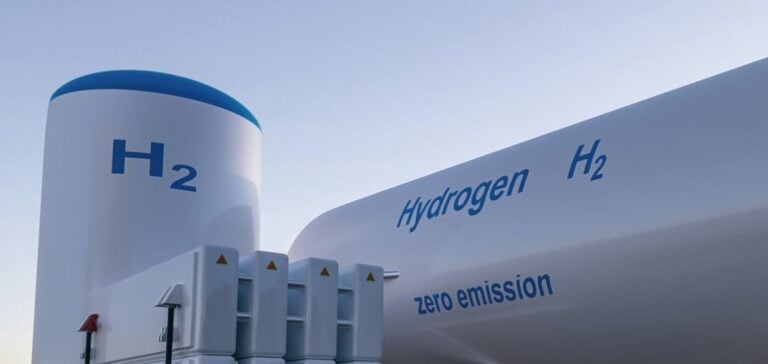Small Modular Reactors (SMRs) are attracting increasing attention for their industrial potential. First Hydrogen, a player in the development of energy solutions, is assessing their integration into operations in Europe and Canada to support green hydrogen production. The goal is to meet the growing needs of industrial and transportation sectors while ensuring energy continuity.
SMRs, characterized by their compact and modular design, present key advantages for projects requiring consistent energy supply. Unlike intermittent sources such as wind and solar, these reactors provide stable energy, making them compatible with the industrial electrolysis processes used to produce hydrogen.
A strategic choice to secure supply
In response to the growing demand for green hydrogen in Europe and North America, traditional production capacities struggle to meet required volumes. SMRs, with their flexibility and rapid deployment potential, could allow First Hydrogen to adjust production according to market demands.
Additionally, their potential for local deployment minimizes the logistical costs associated with hydrogen transport, which is often high due to the specific infrastructure needed for its distribution.
Adaptation to regulatory frameworks
The exploration of this technology also aligns with public policies supporting hydrogen as a pillar of the energy transition. In Europe, the European Union aims to boost production to reduce energy dependency, while in Canada, tax incentives encourage the development of advanced technologies in this field.
However, adopting SMRs is not without challenges. Their initial costs, though modular, remain significant, and nuclear energy regulations vary significantly between jurisdictions, potentially extending implementation timelines.
A dual-purpose energy model
SMRs’ capabilities are not limited to hydrogen production. Excess energy generated can be fed into local grids to enhance profitability or power infrastructure such as electric vehicle (EV) charging stations.
This combined-use strategy could strengthen First Hydrogen’s competitiveness, particularly in markets seeking energy flexibility.
A pragmatic industrial approach
Rather than positioning itself solely on environmental discourse, First Hydrogen’s initiative relies on primarily economic and strategic arguments. The modularity of SMRs would optimize costs and accelerate deployment in strategic markets, addressing specific needs for industrial or transportation hydrogen.
By integrating this technology, the company is positioning itself across a diversified value chain, meeting the demands of a market in transition, where green hydrogen is no longer merely an energy solution but a commercial driver at the heart of global industrial strategies.






















